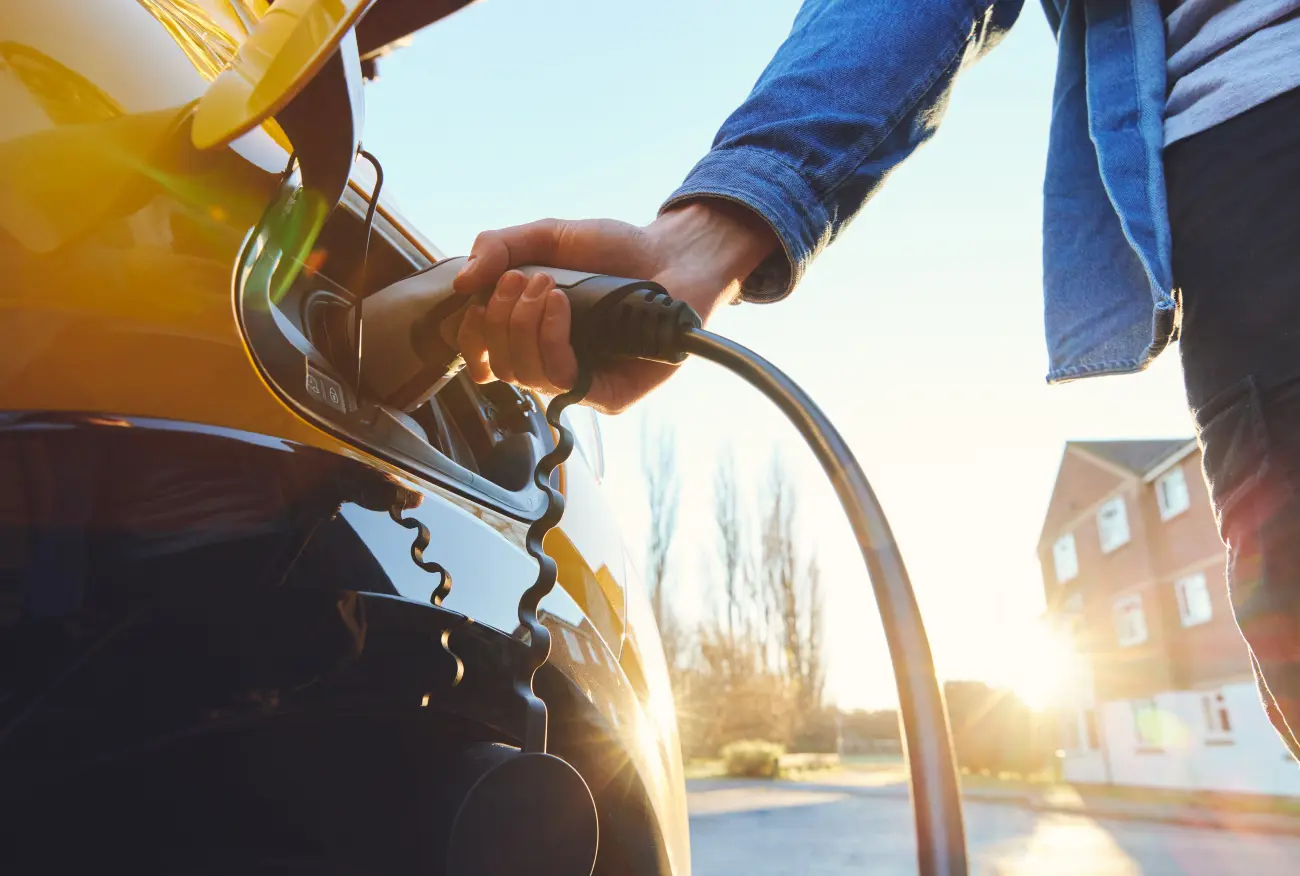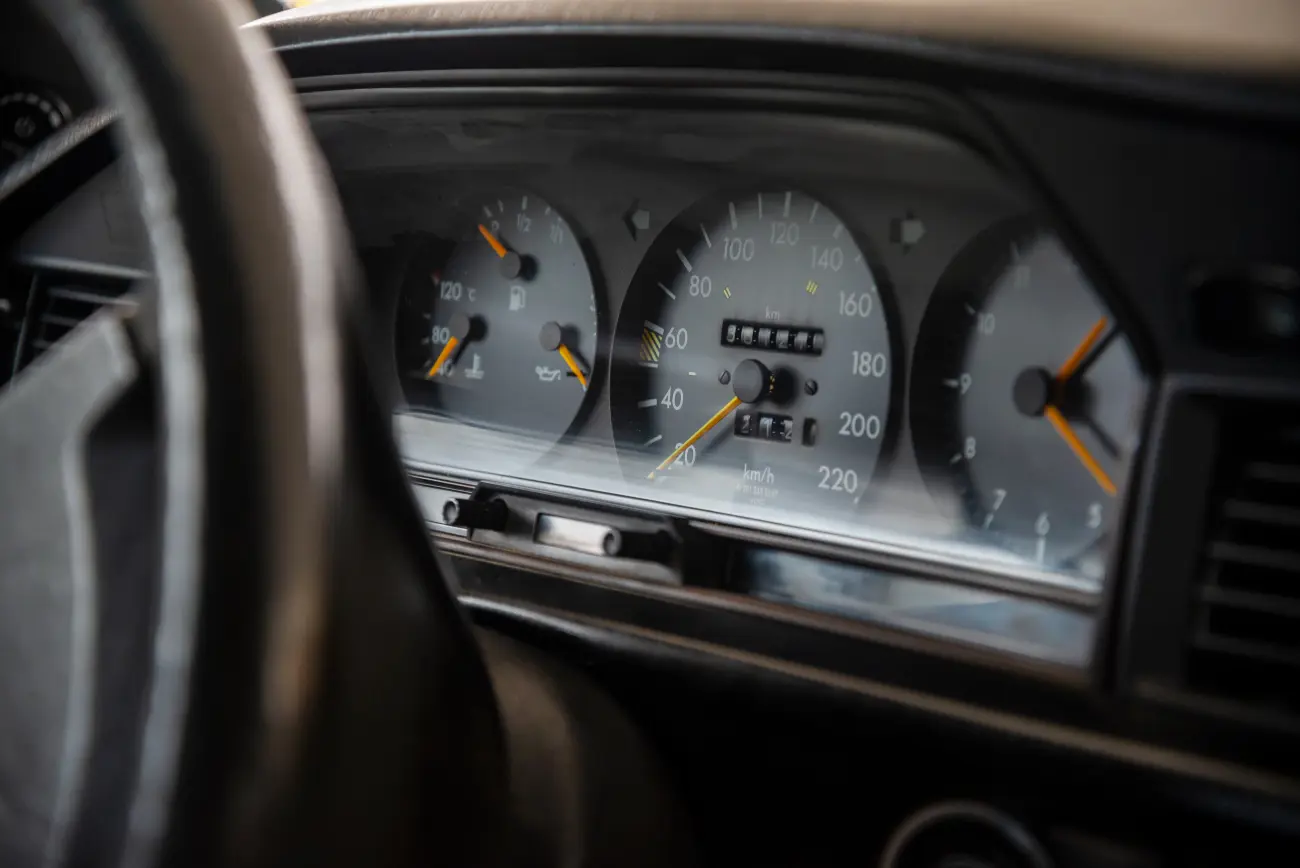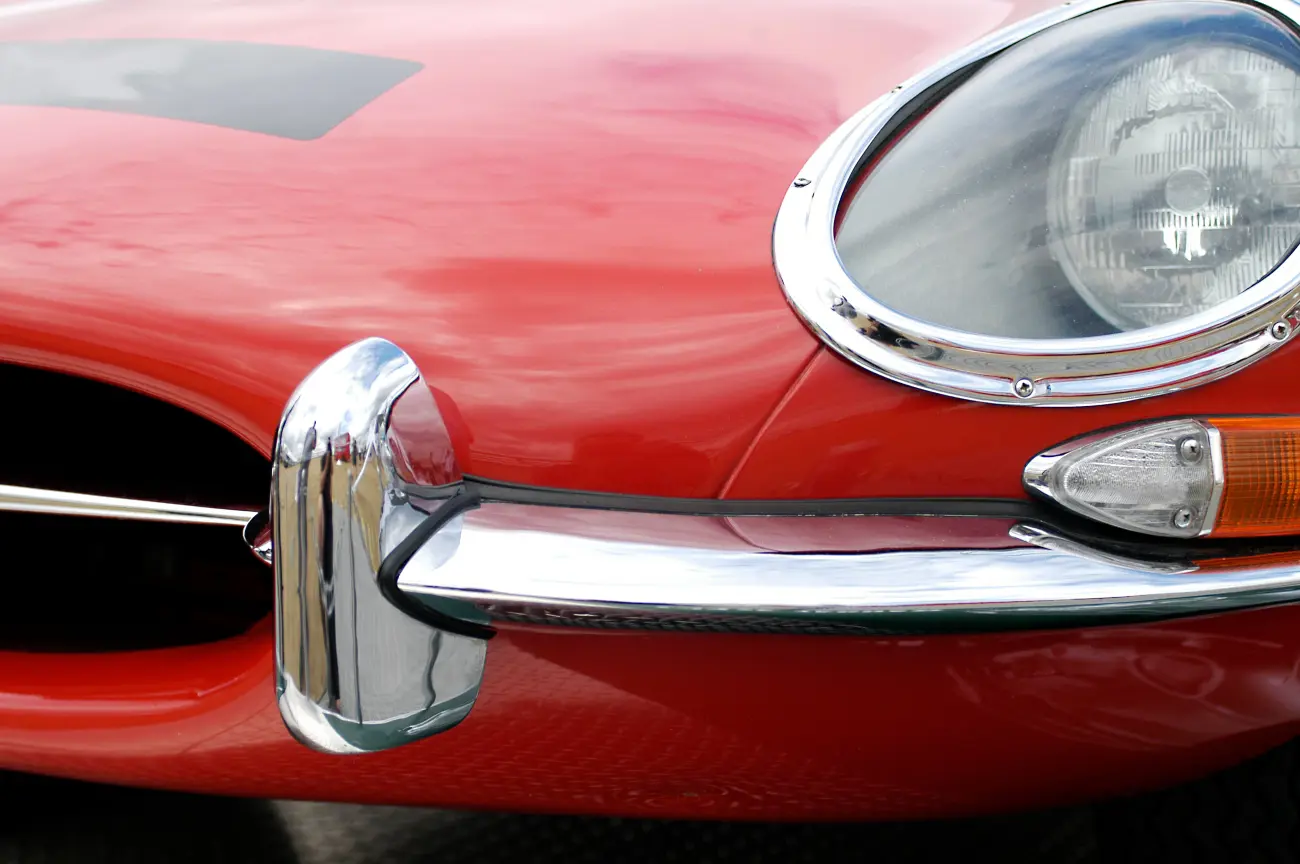What will happen to classic cars when petrol is banned?
19 August 2022
For all UK car owners, there is one very significant deadline coming fairly quickly down the track. That is the ban on the sale of new petrol and diesel vehicles, which is due to come into effect from 2030.
And, if you’re thinking that the future must be hybrid, think again. The sale of all hybrid vehicles (part fossil fuel, part electric) will become illegal a little later, from 2035.
These dates are going to present some major disruptions to the motoring landscape in this country.

Let’s just spell that out again: from 2030, you won’t be able to buy a new petrol or diesel car. Five years later, even hybrid cars will disappear completely from showrooms.
After that date, anyone seeking a new car must choose from either a battery-electric vehicle, or one fuelled by hydrogen.
So far, the uptake of electric cars has been strong and Lancaster have insured an electric conversion classic! Hydrogen cars have been slower to take off here in the UK, but could present a serious alternative to electric over the next few decades.
What we can say for certain, however, is that whatever fuels your new car from 2035 onwards, it won’t be fossil fuels.
So what does this mean for classic car owners?
Does the ban on petrol and diesel cars mean that classics will have had their day?
And what are your options when it comes to future-proofing your classic?
Remember that, whatever type of classic you currently own, Lancaster can find insurance cover to match. Whether you need classic car insurance for Japanese imports, vintage military vehicles or anything in between, we can help.
How will the motoring landscape change after 2030?
The first thing to clarify is that the ban is only on the sale of brand new vehicles powered by fossil fuels. There is (as yet) no planned legislation to ban owners from driving their existing petrol or diesel cars.
Even so, the legislation is still fairly radical, since the typical lifespan of a car in this country is around 14 years.
That would mean that, by 2044, the vast majority of the country’s petrol and diesel cars will probably be off the road. Any remaining hybrids would follow them into oblivion around five years later.
Does this mean the disappearance of all those beloved classics from UK roads? Probably not – because they tend to have much greater longevity.
As you will know as a proud owner, classic cars tend to be lovingly looked after for far longer than their modern-day, ‘daily driver’ equivalents. Owners of classic cars typically do relatively few miles in their classic, and take great care over them, restoring and maintaining them to ensure that they have the longest life possible.
That’s why classic car insurance specialists like Lancaster can often provide quotes that are cheaper than normal car insurance.
We’re pleased to insure a wide range of classics from around the globe, and from across the decades.
We can arrange classic car insurance for Japanese imports, ‘80s German super saloons, cute French superminis and everything in between.
As well as securing you cheaper insurance premiums, this love and attention that you bestow on your classic could serve you well in the future, too. It may be that, when everyone else is saying goodbye to their last petrol or diesel car in around 2040, you will still be maintaining, driving and cherishing your classic.
One change you will notice, however long you plan on retaining your classic, is the price you pay to fill it up. With fewer and fewer fossil-fuelled cars on the road, the demand for petrol and diesel will tail off dramatically.
That will, in turn, result in fewer filling stations and less infrastructure around fossil fuels. Fuel will become harder to find. Fossil fuel providers won’t enjoy the economies of scale they have currently, and will be forced to push up fuel prices as a result.
So you’re likely to find, in the future, that refuelling your classic will be more expensive.
How classics will be affected over the long term
Different classic cars may face slightly different futures as our fuel landscape evolves over the coming years. At one end of the spectrum, there are those classics that are owned but never driven, like museum pieces.
Say, for example, that you are the proud owner of a mint-condition Ferrari 250 GTO or Jaguar XK120 (whose 70th anniversary we celebrated a few years ago). You keep the car under wraps, as a thing of beauty to admire rather than risk taking out on the road.
Maybe you own something very special. A Toyota 2000GT, for example, which you look after meticulously and protect with some specialist classic car insurance for Japanese imports.
In all these cases, a ban on petrol and diesel cars, and any subsequent fuel price rises, is not going to affect you in any way. You are still the owner of an exceptional classic, whose value may only continue to rise.
On the other hand, you may take your classic out for a regular spin. After all, classics often do benefit from regular use. In this scenario, you will start to notice a rise in your fuel spending as petrol and diesel become more niche products after the new car ban.
However, if you’re expecting dramatic fuel price rises after the ban on new fossil fuel vehicles, things may not be as bad as you fear.
Traditional combustion engine vehicles will still be around for some time to come, even if they are only available on the used market from 2030 onwards. That means that there will still be demand – and, as a result, infrastructure – for some years to come.
There is even a chance that petrol and diesel fuel prices may go down for a few years. How so? Well, there will be reduced demand – but the oil companies will still want to generate big sales, so they may actually bring down prices to stay competitive.
In the long run, however, it’s likely that prices will rise, with petrol and diesel eventually becoming niche products.
Will classic car owners still enjoy the expert support they do today?
Today’s classic car owners are able to be part of a huge community of fellow owners and expert mechanics and restorers.
Of course, owners’ clubs play a huge role in keeping this community active and spreading knowledge and expertise.
If you’ve not yet joined the owners’ club for your particular classic, we’d strongly recommend doing so. Membership will put you in contact with a big, friendly community of other people who love, own, drive and restore the very same classic car as you. Check out our definitive guide on classic car restoration for some tips and inspiration.
The forums and message boards are a wonderful place to seek advice on locating a missing part or specialist mechanic. What’s more, many insurance companies have relationships with owners’ clubs, so you may also be able to secure a discount on your classic car insurance for Japanese imports, ‘70s French coupes, British Leyland staples or whatever classic you love to drive.
How long will this world of expertise survive? Well, you can be sure that owners’ clubs will remain busy for as long as people are driving classics.
And that, as we have seen, should be quite some time. If there is one thing classic owners do well, it’s looking after their vehicles and keeping them in great health for future generations to enjoy.
When it comes to access to expert mechanics, however, the future could be more uncertain. As Britain’s motorists move in their droves towards electric cars, we can expect the nation’s car mechanics to follow them.
There will be a great many more mechanics who know their way around an electric car. There will be many fewer, we’d suspect, who will be able to poke around with confidence the contents of a traditional combustion engine.
In fact, the classic car industry is a very important one. It has, according to estimates by the Historic & Classic Vehicles Alliance, an annual turnover of some £18.3 billion.
We must hope that future governments realise that this is an industry worth preserving, for the income it generates and for the many jobs it creates.
And the success of places like the brilliant Bicester Heritage, which we profiled elsewhere on the site, suggests that this passion and expertise is here to stay for some time.
What will the classic car market look like in the future?

A few decades in the future, it’s likely that there will be fewer classic petrol and diesel cars (although not necessarily fewer classics in general!).
This is for two reasons. Firstly, the existing fleet of petrol and diesel cars will gradually diminish after 2030, when no new fossil-fuel cars are produced.
That will, of course, have a knock-on effect on the classic car market. You will find that, from 2050 onwards, fewer and fewer used cars will be petrol or diesel.
For one thing, fewer of these cars will still be on the road due to the natural ageing process - potentially pushing up prices for serious collectors.
Also, petrol and diesel cars will by then be a much less attractive ownership proposition, because of the much-diminished infrastructure and likely increased prices.
That means that owners may have less incentive to take care of their conventional combustion-engine cars.
If the sheer character of fossil fuel engines is a big part of the charm of classic car motoring for you, this may be a concern. However, we’re talking so far in the future that only younger classics fans need to feel too much concern.
And, in any case, it’s quite possible that a big enough community of fossil-fuel enthusiasts will remain, keeping the traditional classics alive well into the latter half of the 21st Century.
At some point, however, electric cars will be the dominant force in British motoring – in the new and used car markets, and even on the classic car scene. How will the classic car market look at this point?
After all, for today’s classics, the character, feel and sound of their engine is a big part of their personality and charm. Electric cars will inevitably be less distinctive and individual when it comes to engine and driving dynamics.
That may mean that deciding which electric vehicles become future classics becomes more about looks and rarity than about driving characteristics.
Can you convert your classic car into an electric vehicle?
Here, surely, is one obvious way that classic car owners can continue to enjoy their vehicles, while keeping up with legislation and doing their bit for the planet.
Many UK companies are already able to convert traditional combustion-engine cars into electric vehicles. Indeed, in another feature we looked at the feasibility of converting a classic car into an electric version.
There are several compelling reasons why you might want to own an ‘electric classic’. For one thing, you are effectively having your cake and eating it.
You will be the proud owner of a beautiful, iconic vehicle from our motoring past. Yet, at the same time, you will have a modern, efficient engine under the bonnet.
You can own the Ford Cortina, Range Rover or Citroen DS of your dreams – but with none of the complex mechanicals and expensive servicing that so often go with owning a decades-old motor.
There are long-term savings to be made, too, through electrification. For one thing, owners of electric vehicles pay lower vehicle tax than their diesel and petrol counterparts. The latter, after all, are taxed according to how much carbon dioxide they produce.
Fully electric cars produce none of this gas at all, so are exempt from road tax. That will save you significant amounts of money over the years.
Of course, your car may already be exempt from road tax, by virtue of being 40 years old or more and thus a ‘vehicle of historic interest’. Our feature on tax exemption for classics explains more about this particular saving.
You should also save money when it comes to servicing costs. The drivetrain of an electric car is fairly simple, with fewer complicated moving parts than a traditional engine. Result: simpler, and cheaper servicing.
If you’ve ever had the headache and expense of replacing an oil filter, cambelt or other integral parts of a traditional petrol or diesel engine, you’ll know that this constitutes a big plus.
In fact, as an electric car owner all you’ll really need to look after will be the battery pack and electric drivetrain. The charging cable should also be regularly checked for damage.
Electric car owners will also make savings by being exempt from the various fossil fuel congestion charges now in operation in various cities.
London’s Ultra-Low Emission Zone (ULEZ) is one such example: read our guide to the ULEZ to learn more about that particular charge.
In short, anyone converting their classic into an electric vehicle can expect to make some savings over the long run. Although, of course, before all those savings really kick in, you will have paid out a large sum for the cost of the electric conversion itself. Check out our blog for 25 more reasons why you should own an electric classic car.
Costs of a conversion vary. An engineer may be able to quote you a reasonable price to remove the engine, transmission and fuel tank from your petrol or diesel car, and replace them with a battery, electric motor and other key parts.
If you go to a recognised conversion company, you will be looking at a cost somewhere between £20,000 for a small car and £60,000 for a bigger vehicle. Be sure to check how this conversion might affect your classic car insurance, too.
Prices may come down as the technology beds in and more and more competitors spring up: however, at the moment converting a classic into an electric vehicle is still a relatively expensive option.
What options do I have, as a classic car owner looking into electric vehicles?

There are a handful of companies out there already converting a wide range of classics into EVs. For example, Electric Classic Cars in Newtown, mid-Wales have already performed conversions on everything from a Range Rover and VW Camper to a Fiat 500 and Porsche 911.
Another group of companies will simply sell you electrified versions of classic cars. A brilliant example of this way of doing things is Staffordshire's RBW Sports & Classics, who have reinvented the iconic MG MGB two-seater.
Now, if any classic car encapsulates the golden age of British motoring, it might be the MGB. Simple, quick, pretty and nimble, the little MG is a brilliant classic car to own. And we should know: it’s one of the vehicles for which we're most often asked to provide classic car insurance.
Such a small, agile and mechanically simple car also seems a brilliant candidate for electrification. That was clearly RBW’s thinking, and they are now producing EV versions of the MGB in both its hard-top (GT) and soft-top (roadster) body styles.
The car has a decent 160-mile range, and can do the 0-60 sprint in nine seconds. RBW can also convert another British icon: the Jaguar E-Type.
What could be better than cruising around in one of the world’s most revered classic cars, secure in the knowledge that you are completely future-proofed?
Find classic car insurance from Lancaster
As we’ve seen in this feature, there are some pretty fundamental changes in motoring lying just around the corner. Petrol and diesel cars will soon be a far less common sight on our roads.
That has implications, of course, for all classic car lovers. It’s likely that, in decades to come, there will be many fewer fossil-fuel classics on the UK road network.
However, we see no cause to be pessimistic about the future of this vibrant industry and community. For one thing, we know Britain’s classic car owners are passionate about their vehicles, and will continue to love and maintain them for many years after more commonplace ‘daily drivers’ have driven their final mile.
Also, further in the future, we have no doubt that the electric vehicles of today and tomorrow will themselves pass into classic status. It may seem hard to imagine, but in a few decades time, some of today’s pioneering EVs may be as revered as an E-Type or a Porsche 911 is now.
Whatever classic you drive – and whatever fuel goes into its fuel tank – we recommend some specialist classic car insurance. We can arrange classic car insurance for Japanese imports, Italian stallions, American muscle cars, British classic cars and so many more.
Why not get a simple online quote today? Or request a call back at a time that suits you.
